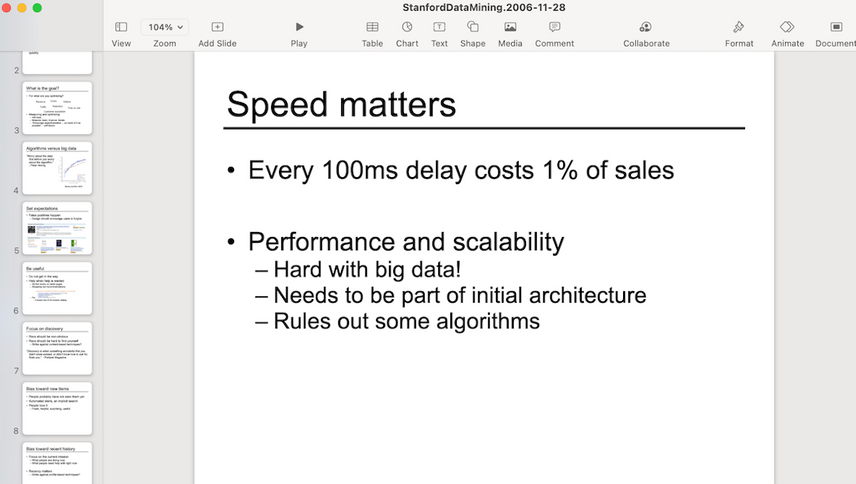Amazon study: Every 100ms in Added Page Load Time Cost 1% in Revenue
Back in 2006, Amazon found that every 100ms in added page load time cost them 1% in sales. This has now become one of the most referenced data points surrounding page speed and web performance — standing the test of time as a clear example for why having a fast site is important.
For context, a 1% loss of annual revenue for Amazon in 2006 would have been around $107 million. Today, this would be about $3.8 billion!
The findings come from former Amazon software engineer Greg Linden, who worked at the company during its early years, long before it became the retail giant that we know today.
First referenced on his blog, Geeking with Greg , he wrote in response to a similar speed experiment from Google:
This conclusion may be surprising – people notice a half second delay? – but we had a similar experience at Amazon.com. In A/B tests, we tried delaying the page in increments of 100 milliseconds and found that even very small delays would result in substantial and costly drops in revenue.
Then he expanded on this during a presentation he gave for a data mining class at Stanford, titled “Make Data Useful”. Fittingly, the slide “Speed Matters” shared how every 100ms delay cost Amazon 1% of sales.

The lesson being, both then and now, is that speed matters because it has such a big impact on your revenue.
Why is page speed so important?
The study from Amazon showed that even milliseconds matter when it comes to page speed.
Here’s why speed should be a top priority on your site.
User Experience
First and foremost, visitors love fast sites.
They want things fast, easy, and without any friction. And with a majority of marketplaces now online and the growing availability of global customers, there’s more competition than ever before to attract and keep visitors on your site. Even a few seconds could make the difference between getting a sale or giving it to someone else.
This means to provide a good user experience, you must have a fast site.
Rankings
Over the past few years, Google has announced different updates that prioritize speed in their algorithm. The search team announced speed would be a ranking signal for desktop searches in 2010 , followed by the Speed Update in 2018 for mobile searches.
And now as part of the Page Experience update, Google is using Core Web Vitals as a ranking signal. Core Web Vitals measure the user experience of a page — specifically speed, responsiveness and visual stability. These metrics are included with existing User Experience signals for a new ranking factor category called "Search signals for page experience" .
In short, Google rewards pages that provide a good user experience in its SERP.
Revenue
All together, this means a fast site is important for your bottom line.
Having a fast site makes for a good user experience, which helps improve rankings and brings in visitors, which keeps them on your site and ultimately leads to more conversions.
Since Google’s most important instrument to measure speed is Core Web Vitals, you’ll want to keep a watchful eye on this and know if you are no longer passing the Core Web Vitals Assessment. ContentKing monitors your site's Origin Summary (field data) and Lighthouse metrics (lab data) for all of your pages, and alerts you if the performance of your pages drops significantly.



